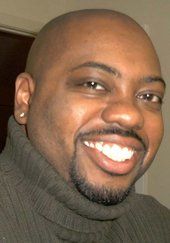The Solopreneur Life | Passive Income | Home Business
The Enormous Business Opportunity That I Missed
- By Larry Keltto
- •
- 18 Sep, 2014
On a wet, windy Tuesday night in September 1983, eight college students and two professors gathered in a lounge at the student center at St. Olaf College in Northfield, Minnesota.
One of the students, John, had persuaded us to come together and conduct an organizational meeting for something he called “fantasy football.” John had briefly described fantasy football to me, and I thought it sounded lame. But it involved football and my friends were going to give it a try, so I went.
The meeting included a draft of NFL players, so we brought pens, pencils, notebook paper, the sports page from Monday’s Minneapolis newspaper, and our limited knowledge of the National Football League.
John began by explaining what fantasy football was all about. For several years, he said, he had been part of a fantasy football league — the KFL — which was formed by students at Brown Institute in Minneapolis. John’s buddy Chuck was a member of the KFL, and John helped Chuck run his team. John told us he thought it would be cool to form a league of our own.

John handed out copies of the league rules. The top of the front page said, “Olaf Football League.” John explained how fantasy football worked: “Each week your team plays one other team in the league. When one of your players scores points in the NFL, your fantasy football team scores points. For example, if you own Dan Fouts and he throws a touchdown pass, your team gets six points. If you own Eric Dickerson and he scores a TD, then your team gets six points. If your kicker kicks a field goal, you get three points.
“Tonight we’ll each draft three quarterbacks, four running backs, four receivers, and two kickers. Each week you will ‘start’ one QB, two RBs, two receivers, and a kicker.”
John said we could keep players for as long as we wanted; we would not re-draft players prior to the 1984 season but we would draft NFL rookies in the spring.
The draft itself was fun. I was and I am a Cleveland Browns fan, so I chose two of their best players — Brian Sipe and Ozzie Newsome. When Jeff drafted a kicker, Rolf Benirschke, in the first round, it drew laughs; even as fantasy football novices, we knew drafting a kicker in the first round was dumb. John was the only guy in the room who knew what he was doing, and he drafted the pillars of a team that would dominate the OFL for its first five seasons. In the last round of the draft, Phil chose Dan Marino, a rookie quarterback who never played; we chuckled at the folly of selecting a backup QB; Phil would get the last laugh when Marino led Phil’s team to multiple OFL titles.
When Sunday came and Week 1 of the OFL season began, we immediately loved fantasy football. We watched two games in the afternoon and tried to track the OFL scoring. We noticed that we were rooting harder for our OFL teams than for our favorite NFL teams. Wow, that felt weird! On our way to breakfast Monday morning, we bought copies of the newspaper and tried to figure out if our fantasy teams had won or lost.
When the Monday Night Football game ended, one of the owners, Steve, used his Apple II computer and dot-matrix printer to produce the OFL Report, which included standings, scores from the week, an OFL “player of the week,” and the schedule for the upcoming week of games.
The OFL Report soon had a tagline that was a truism: “Always welcomed the week of a win, always dreaded the week of a loss.”
We bought a traveling trophy (a plaque) that went to the league winner. OFL champions were crowned in 1983 and 1984. We graduated from college in 1985 and settled around the country and around the world. The OFL kept us connected.
The OFL was like a secret society. We loved that we were participating in a strange thing that nobody else understood.
Back then, fantasy football information was hard to find. Friday’s USA Today was the only source of injury news. Tracking the scoring on Sundays was difficult, and each week we’d be left hanging:
“Who got the last touchdown for the 49ers?”
“Those 27 points for the Jets — was that three touchdowns and two field goals, or was it four touchdowns and a missed extra point?”
“Danny White threw 3 TD passes; I wonder if Mike started him this week?”
Then in the late 1980s one of our owners, Jeff, got smart and began calling newspaper sports departments on Sunday nights to gather the missing scoring information. Then we’d call Jeff for the scoop.
But you never knew for sure if you’d won or lost until you received the OFL Report, which the league commissioner typed up on Monday night, mailed on Tuesday morning, and which arrived on Friday or Saturday.
Today the OFL and our friendships are as strong as ever. As the years rolled on, our lives changed. The 1990s were filled with weddings and birth announcements. Now there are invitations to graduation parties. Five years ago one of the owners, Erik, passed away and we convened in Wisconsin for his funeral. Jeff’s son took over Erik’s team.
We share a history.
We come together once a year to play golf, tell stories, and conduct our rookie draft. During the season we meet weekly in a chat room to conduct a draft of free-agent players. We stay in touch by email and text.
Now it seems like everybody in the world plays fantasy football. There’s fantasy information everywhere: online, on TV, radio, newspapers, and magazines. You can follow your team’s game on your smartphone in real time. Sitcoms have been based on fantasy football.
And it’s big business. The Fantasy Sports Trade Association — yes, there’s a trade organization for fantasy — says fantasy football is a $70 billion market. Some business analysts believe that if fantasy football didn’t exist, the NFL’s TV audience and revenues would be a fraction of what they are, because if not for fantasy football, millions of people wouldn’t follow the NFL.
The OFL is an important part of my life, but it’s a nagging reminder of a missed opportunity.
It blows my mind that fantasy football is so huge. Back in the 1980s, if I’d recognized and capitalized on the opportunity that existed in fantasy football, today I would own a piece of that $70B. Even a tiny sliver of it would be awesome!
But when the business opportunity was ripe, I was too busy with my life and work to see it.
The business lesson here is simple. If you’re part of something new and small that you really, REALLY love, then it’s likely others will love it, too. Your opportunity exists in: 1) telling the world about this cool thing you enjoy, and 2) creating products or services to help others enjoy it, too.
The life lesson is simple, too. When you’re part of a group of good friends, find ways to keep the group connected and work hard at maintaining the relationships. It’s worth it.
Free Newsletter "Get the Latest Solopreneur Tips and Advice"










